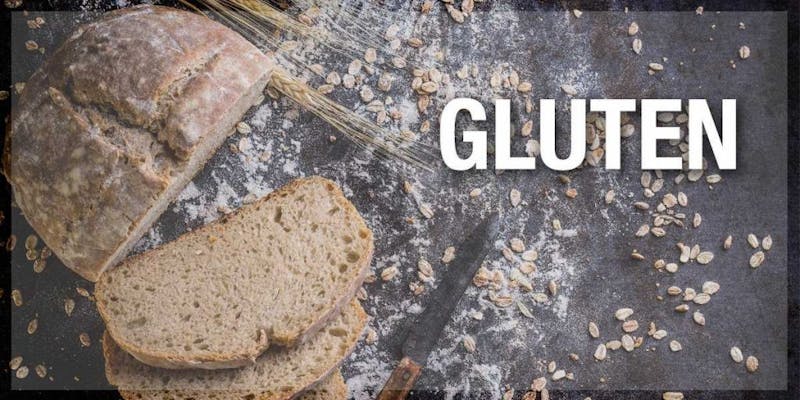
Gluten and Celiac Disease
Well, gluten is not just a new fad word we keep hearing about, it is very serious for people with a specific condition known as celiac disease.
Gluten comes from a family of storage proteins, gliadin and gluten in the endosperm, a type of tissue produced in the seeds of cereal grains like wheat, barley, and rye. Gluten nourishes the plant embryos during the germination stage and when processed by the food industry gives elasticity to dough, in turn affecting the chewiness of baked wheat or cereal products.
When a person suffering from celiac disease consumes gluten an immune response is triggered. This is why it’s called an autoimmune disease, which occurs when your antibodies, which usually protect you from harmful invaders, attack healthy tissues by mistake. There are between 20 to 50 million people in the United States alone suffering from autoimmune diseases. With celiac disease the main result is inflammation and damage to the intestine’s lining leading to erse symptoms like discomfort and possible nutrient deficiencies caused by malabsorption.
Non-Celiac Gluten Sensitivity
What happens when you get tested for celiac and the test comes back negative? However, you are still feeling those symptoms related to gluten? It might be what is known as non-celiac gluten sensitivity. Research shows that about 18 million Americans have gluten sensitivity; about six times the amount of people with celiac disease. This intolerance causes the body to mount a stress response, often related to GI symptoms, that is different from the immune reaction that occurs in those with celiac disease.
Although there are pharmacological test trials being held to produce medication to aid in these conditions, the only treatment known to date to work effectively in both and other types of gluten sensitivities is through healthy, conscious eating and nutrition. The management involves adopting a gluten-free diet, that is, excluding the protein gluten altogether. This might seem difficult at first, giving up on foods we are so used to eating, but it does not mean that there aren’t any nutritious and tasty alternatives.
Safe Foods
It may help to focus on the foods you can still enjoy and won’t cause any distress. First off, you might be pleasantly surprised to realize there are many products free of this protein nowadays, designed specifically for people with these gluten related ailments. Many stores now carry gluten-free products like bread, pasta, cereals, and many more. So this means you might not even need to stop having your favorite foods after all! In addition, there are many healthy, delicious foods naturally gluten free foods such as beans, seeds, nuts, eggs, fresh meats, fish and poultry, fruits and veggies, and most dairy products. You can also still have cereal grains like amaranth, buckwheat, corn and cornmeal, flax, arrowroot, quinoa, rice, tapioca, sorghum, the possibilities are endless!
May is the National Celiac Disease Awareness Month, learn more about this autoimmune disease and its related sensitivities and how it can be managed easily (and delicious!) through a few changes in your eating habits. People with any of these problems do not have to suffer, feel deprived or get sick; they can lead long, healthy, fulfilling lives. So let’s start making the right choices and think outside the (cereal) box!

